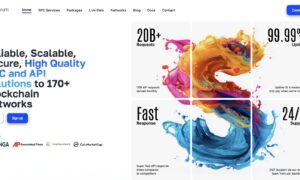As the energy sector grapples with the complexities of modern challenges—ranging from renewable energy integration to the need for heightened safety protocols—innovative training methods are essential. The upcoming release of the Meta Quest 3, a cutting-edge VR headset, is set to revolutionize training in this critical industry. By leveraging immersive virtual reality experiences, the Meta Quest 3 will enable more effective and safer training for high-risk jobs, ultimately enhancing workforce preparedness and safety standards.
The Need for Enhanced Training in the Energy Sector
The energy sector, which includes oil and gas, renewable energy, and utilities, often involves dangerous work environments. Employees face a variety of risks, including hazardous materials, high-voltage equipment, and complex machinery. Traditional training methods, while valuable, can fall short in providing the realistic and hands-on experience needed to prepare workers for these challenges.
This is where XR technologies, particularly the Meta Quest 3, come into play. With its advanced features and capabilities, this VR headset promises to enhance training programs significantly.
Features of the Meta Quest 3
The Meta Quest 3 is designed to provide an immersive training experience with several key features:
- High-Resolution Displays: With improved resolution, the headset allows for clearer and more detailed environments, making simulations feel more realistic.
- Advanced Tracking: The Meta Quest 3 incorporates enhanced tracking technology that enables precise movement detection, making interactions within virtual environments more intuitive.
- User-Friendly Interface: Designed for accessibility, the Meta Quest 3 allows users to navigate and engage with simulations easily, reducing the learning curve associated with new technologies.
These features make the Meta Quest 3 an ideal tool for training in the energy sector, where workers can engage with intricate systems and scenarios that reflect real-life challenges.
Applications in Training Dangerous Jobs
1. Safety Protocol Simulations
One of the most pressing concerns in the energy sector is worker safety. The Meta Quest 3 can be used to create realistic simulations of potentially hazardous situations. For instance, workers can practice responding to emergencies, such as equipment malfunctions or chemical spills, in a controlled virtual environment. By repeatedly engaging with these scenarios, employees can develop their decision-making skills and learn how to follow safety protocols effectively, all without putting themselves or others at risk.
2. Equipment Operation Training
Operating complex machinery safely is critical in the energy sector. The Meta Quest 3 enables trainees to interact with 3D models of equipment, such as drilling rigs or turbines, allowing them to practice operations and maintenance tasks in a risk-free setting. This hands-on approach helps workers understand the intricacies of the equipment and develop muscle memory for critical procedures, reducing the likelihood of accidents on the job.
3. Team Collaboration Exercises
Many energy sector jobs require effective teamwork, especially during emergencies. The Meta Quest 3 allows multiple users to engage in the same virtual environment, facilitating team training exercises. Trainees can practice communication and coordination skills, learning to work together seamlessly during high-pressure situations. This collaborative aspect of training can significantly improve team dynamics and response times in real-world scenarios.
4. Compliance and Regulatory Training
Staying compliant with industry regulations is vital for safety and operational efficiency. The Meta Quest 3 can simulate audits and inspections, allowing employees to understand compliance protocols thoroughly. By navigating virtual regulatory scenarios, trainees can familiarize themselves with the necessary documentation and procedures, ensuring they are well-prepared for real-world compliance challenges.
The Benefits of XR Training with Meta Quest 3
The implementation of XR training using the Meta Quest 3 offers several advantages for the energy sector:
1. Improved Safety Outcomes
By providing workers with realistic training experiences, the Meta Quest 3 can help reduce workplace accidents. Trainees who are better prepared for hazardous situations are more likely to respond effectively, minimizing risks to themselves and their colleagues.
2. Cost-Effective Training
Traditional training methods often involve significant costs, including materials, travel, and downtime. XR training can be more cost-effective by allowing employees to practice in virtual environments without the associated expenses of physical training. Additionally, the ability to conduct training remotely can reduce the need for travel and logistics.
3. Scalability and Accessibility
The Meta Quest 3 makes it easier to scale training programs across different locations. With the ability to deliver training remotely, companies can ensure that all employees, regardless of their geographic location, receive consistent and high-quality training.
4. Continuous Learning and Adaptation
As technology evolves, so do the skills needed in the energy sector. XR training can be updated regularly to reflect new equipment, procedures, and regulations, ensuring that employees are always trained on the latest standards and practices.
Looking Ahead
The introduction of the Meta Quest 3 marks a significant milestone in the integration of XR technologies into the energy sector. As companies embrace these innovative training methods, the potential for enhanced safety, efficiency, and skill development is immense.
In conclusion, the energy sector stands on the brink of a training revolution. With the Meta Quest 3, organizations can provide immersive, engaging, and effective training experiences that prepare workers for the challenges of dangerous jobs. As we look to the future, the adoption of XR technologies will undoubtedly play a pivotal role in shaping a safer and more skilled workforce in the energy industry. Embracing these innovations is not just a trend; it is a necessary step toward ensuring that workers are equipped to handle the complexities and dangers of their roles.
Read More From Techbullion



































